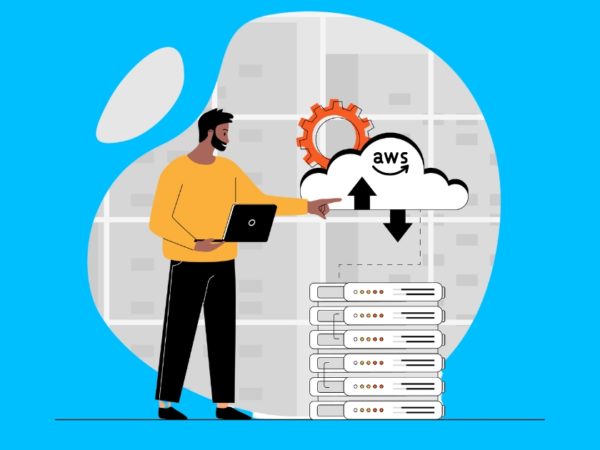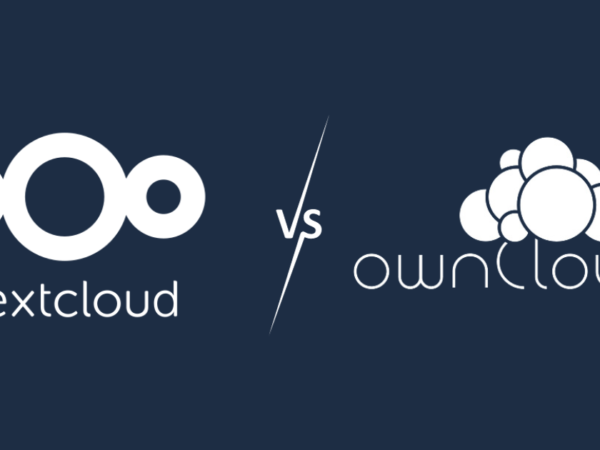With the emergence and growth of Cloud computing, traditional computing services are now shifting to Cloud platforms. Cloud Providers have embraced the trend, making Cloud databases the new rave.
But what exactly is a Cloud database?
Let’s find out!
What are Cloud databases?
A cloud database is a database service that is available through a Cloud service platform/provider. Cloud databases exist outside any dedicated server or hardware.
Organizations can provision Cloud databases in public, private, or hybrid cloud platforms. Like traditional databases, Cloud databases allow enterprises to store, organize, retrieve and serve structured, semi-structured, and unstructured data to their end-users.
Cloud databases are often provisioned in two forms, either in a rented Cloud VM that hosts the DB or a DBaaS (Database as a Service).
You could probably be asking how I should provision my Cloud DB. Well, this depends entirely on the privacy and security concerns you have for your data as an enterprise as compared to the need to free yourself from all the optimization, configuration, and performance issues around databases.
Ideally, Cloud databases provisioned in Cloud VMs provide more security and privacy. In contrast, DBaaS Cloud databases meet the need for scaling and consistent performance because Cloud vendors handle the details around provisioning and availability.
Merits of Cloud databases 👍
Working with Cloud databases provides a ton of merits which we can see below.
Reduction in Cost
The price to performance ratio for Cloud databases is lower compared to on-premise, traditional databases. Ideally, enterprises have the opportunity to run data-intensive processes and applications without worrying about capital expenditure since Cloud providers handle storage capacity and other compute resources required in running databases.
Seamless redundancy, backup, and restoration for services.
Cloud databases are configured to run just-in-time restore for services from backups that are often taken automatically in any event of service downtime or database failure.
Autonomous services
Cloud providers have now integrated machine learning in Cloud databases for autonomous database management. Services such as database provisioning, tuning, scaling, failure detection, and repair are automated, generally reducing administrative burden.
Common Cloud DB solutions
Some of the standard cloud database solutions include:
Data Lakes
Data lakes are scalable central storage areas for structured and unstructured data ingested from relational and non-relational database services.
Data Warehousing
Data warehousing is creating and using data warehouses for Business Intelligence purposes.
Online Transaction Processing (OLTP)
OLTP supports transaction-oriented applications on the internet, such as online banking and e-commerce.
Online Analytical Processing (OLAP)
OLAP involves complex querying of large transactions running online for insights and analytics.
Popular Cloud databases
Below is a list of popular Cloud databases to get started with:
Amazon RDS
Ever needed to free your hands from the time-consuming tasks of database administration? Amazon RDS (Relational Database Service) provides just that, an easy to set up, relational database environment.
Amazon RDS provides a Cloud environment for setting up, running, and scaling relational databases.
In RDS, all hardware provisioning, database tuning, patching, and backups are flexibly automated as needed by an enterprise.
In Amazon RDS, you get to choose from available database instance types, usually optimized. Amazon RDS optimizes memory, storage, and I/O depending on an enterprise’s workloads, all for desired performance.
Amazon RDS supports commonly used DB engines such as MySQL, PostgreSQL, and Oracle. It also features an AWS database migration service to help you continue working with your preferred DB engine even though on the Cloud.
This relational database can be provisioned and managed easily through the AWS management console or Amazon RDS CLI.
Worried about durability or high availability for your data? Amazon RDS features data replication across multiple availability zones and automated backups for any instance running as a Cloud DBaaS.
IBM Cloudant
IBM Cloudant is a full-scale distributed NoSQL database suitable for running heavy workloads in mobile and web processes. Cloudant provides a highly available data persistence layer scalable to any device running web, mobile, IoT, and even the ever-rising serverless applications. IBM Cloudant presents as a JSON DBaaS based on CouchDB.
Through service credentials (JSON formatted snippets to store secrets), IBM Cloudant supports multiple ways of connecting securely to your applications without the need to worry about the security of secrets.
It is easier to get started with IBM Cloudant because there is no software to install, no service to manage, and few configurations to understand. All you need is to specify the number of reads/writes or queries per second that your application needs, and storage capacity will be scaled automatically.
Additionally, IBM Cloudant supports popular languages such as Java, Python, and JavaScript in developing applications.
Unlike in relational databases, where data is handled in tables, rows, and columns, Cloudant handles data in the form of documents.
A Cloudant document is simply a JSON object that stores strings, numbers, arrays, Boolean data, and more.
Azure Cosmos
Azure Cosmos, built by Microsoft, is another popular DBaaS that is schema-less and suitable for NoSQL development. Azure Cosmos services most data requirements in application development– scalability, low latency, and high availability.
Azure Cosmos DB works with multiple data models. Its database engine supports other popular database APIs to simplify data modeling and querying in scenarios one would like to work with existing databases.
Working with Azure Cosmos is made simple thanks to multi-region data distribution latency checks when building or running applications with large amounts of data in play.
Like other Cloud databases, Cosmos handles automatic patch management, updates, and scaling options for your DB environment, providing the performance needed for your applications.
Azure Cosmos DB is built with security for your data in mind. Every data running instance of Cosmos DB enjoys enterprise-grade encryption. Developers are also presented with self-managed keys for secrets management. The Azure role-based access security adds another layer of security and control to your Cosmos DBaaS instances.
Oracle Autonomous DB
Oracle Autonomous relies on Oracle Cloud Infrastructure to provide workload-optimized database services. Oracle Autonomous Database is famous for data warehousing and transaction processing through autonomous data warehouses and autonomous transaction processing services.
As an autonomous database, it is self-driving, self-securing, and self-repairing.
Oracle Cloud DBaaS protects against accidental and non-accidental database failures through its self-healing and self-repairing feature. The self-healing aspect of Oracle Autonomous saves organizations the time of troubleshooting and testing database failures.
The self-driving feature of this Cloud database does not stop at triggers and alerts alone. Still, with intelligent and adaptive machine learning models, Oracle Autonomous database can automate infrastructure provisioning, management, monitoring, tuning, backup, and recovery for database instances.
The Oracle Autonomous Database can keep internal and external threats and possible DB attacks at bay through continuous self-scanning and threat detection.
Amazon Dynamo DB
Amazon Dynamo, offered by AWS, is a Cloud DBaaS that presents a key-value and document database suitable for NoSQL environments.
Amazon Dynamo DB is built to run serverless web apps, mobile backends, IoT services, and even reusable microservice applications. This Cloud database offering provides offline data access, data synchronization, and memory caching for consistent and enhanced performance.
Some of the most common uses of Dynamo DB include item caching, storing user profiles, and user events for high availability.
Dynamo DB works well with languages and frameworks such as Java, JavaScript, Python, and Ruby.
Google Cloud Platform
Google Cloud Platform or simply GCP provides a wide range of data storage options, both proprietary and open-source. Whether you are developing ERPs, CRMs, Recommender Systems, or gaming platforms, GCP has all Cloud database services that fit your needs.
GCP supports databases that handle relational, key-value, document, and even Memcached data. Google Cloud Platform features fast performant, scalable, and automated cloud database services. Some of the commonly provisioned Google Cloud database services include:
Cloud SQL
Cloud SQL is a distributed and fully managed DBaaS that supports common relational database engines such as MySQL, PostgreSQL, and SQL Server.
Cloud Bigtable
Cloud Bigtable is a fully managed NoSQL DBaaS that is suitable for large-scale analytical environments. Cloud Bigtable is designed to handle growing workloads seamlessly without any downtime. Cloud Bigtable is often used for financial transactions processing and IoT data warehousing,
Cloud Firestore
Cloud Firestore is a document database service suitable for mobile, web, and IoT applications that rely on serverless architecture. Firestore is serverless, scalable, fully managed, and has a powerful query engine that supports ACID compliance.
Conclusion 👨💻
This article looked at Cloud databases, their benefits, and some common solutions that rely on cloud databases. Now that we’ve seen some of the popular DBaaS offerings available, it would be right for you to try them out.
Good luck migrating to a Cloud database!



